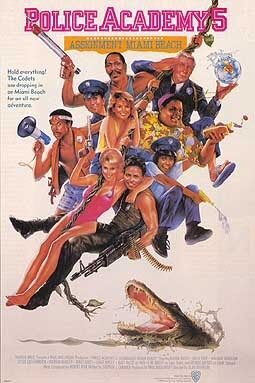Welcome to Retro Television Reviews, a feature where we review some of our favorite and least favorite shows of the past! On Saturdays, I will be reviewing Welcome Back Kotter, which ran on ABC from 1975 to 1979. The entire show is currently streaming on Tubi!
This week, Gabe gets a new student.
Episode 3.18 “Angie”
(Dir by Alan Myerson, originally aired on January 12th, 1978)
Gabe tells Julie a joke about his Uncle Zoltan. It’s not really that good of a joke but Julie fake laughs as if it’s the funniest thing that she’s ever heard. I notice that this has been happening a lot over the course of Welcome Back, Kotter‘s third season. By most reports, Gabe Kaplan and Marcia Strassman could not stand each other off-camera. That’s especially obvious whenever Strassman deliberately overreacts to one of Kaplan’s jokes. It’s easy to imagine that Strassman was secretly thinking of throwing something at Kaplan whenever she laughed.
At school, Mr. Woodman interrupts Gabe’s class to introduce everyone to a new student, Angie Grabowski (Melonie Haller). Epstein, Washington, Horshack, and Barbarino are very excited to see their new classmate, leading to Woodman ordering them to shut up.
Angie announces that she is thrilled to be in Gabe’s class because her dream has always been to become a Sweathog. Really? I mean, Barbarino’s cute but would anyone really dream of hanging out with Horshack? Of course, it doesn’t matter what Angie wants. Washington and Epstein explain that women are not allowed to become Sweathogs. That kind of contradicts everything that we’ve previously learned about the Sweathogs but whatever.
Determined to prove that she can be a Sweathog, Angie riggs the spinklers in Woodman’s office. Woodman ends up soaked but he also announces that he’s going to expel all of the Sweathogs. Angie demands that he expel her as well. (Angie seems to be a little self-destructive.)
Well, so much for the Sweathogs. I guess the show is over. Thanks for reading these reviews and….
Oh wait! Angie figures out that the fire alarm is broken because it didn’t go off when the sprinklers started up. The fire alarm is Woodman’s responsibility! The Sweathogs — including Angie — dress up as firemen and demonstrate to Woodman that the alarm doesn’t work. Somehow, this leads to Woodman not expelling the Sweathogs and apparently just forgetting about the prank with the sprinklers. It also leads to Angie becoming a Sweathog.
Later, Gabe tells Woodman a joke about Ebenezer Kotter, the cheapest of all his uncles. It takes Woodman a while to figure out the joke but then he laughs in his wonderfully unhinges way. Gabe Kaplan actually had more chemistry with John Sylvester White than he did with Marica Strassman.
This episode attempted to rejuvenate the show by introducing a new Sweathog. That makes sense. A lot of shows have tried to reverse declining ratings by introducing a new character. The problem is that the show doesn’t need a new Sweathog as much as it just needs for the old Sweathogs to return to being the realistic (if flamboyant) troublemakers that they were during the first season. In her first appearance, Melonie Haller delivers her lines in a flat and emotionless manner, which adds to the feeling that Angie might not be quite sane. Seriously, I’m worried about Horshack. It’s obvious that he has a crush on Angie but Angie seems likely to turn into a stalker.
Run, Horshack, run!









